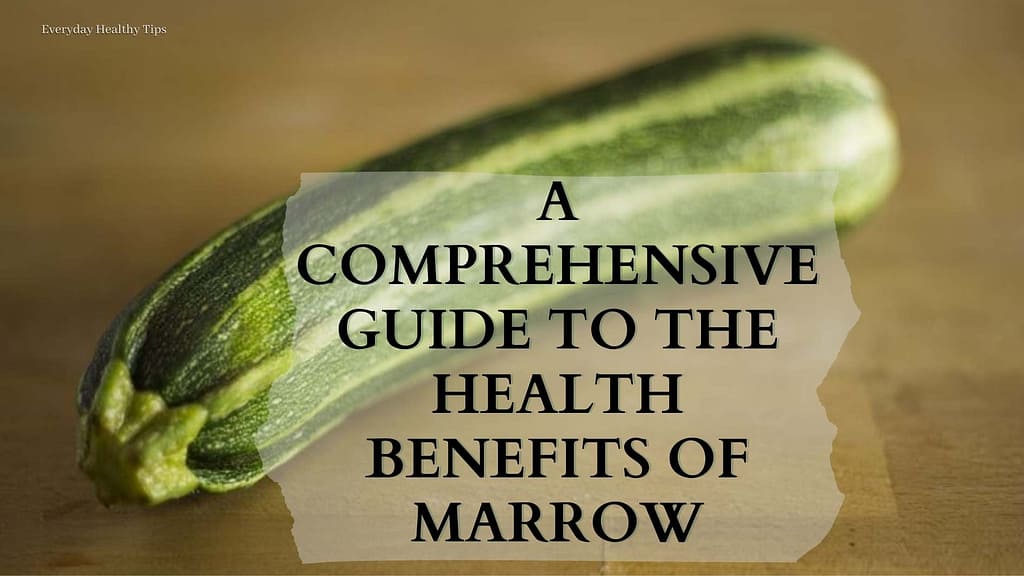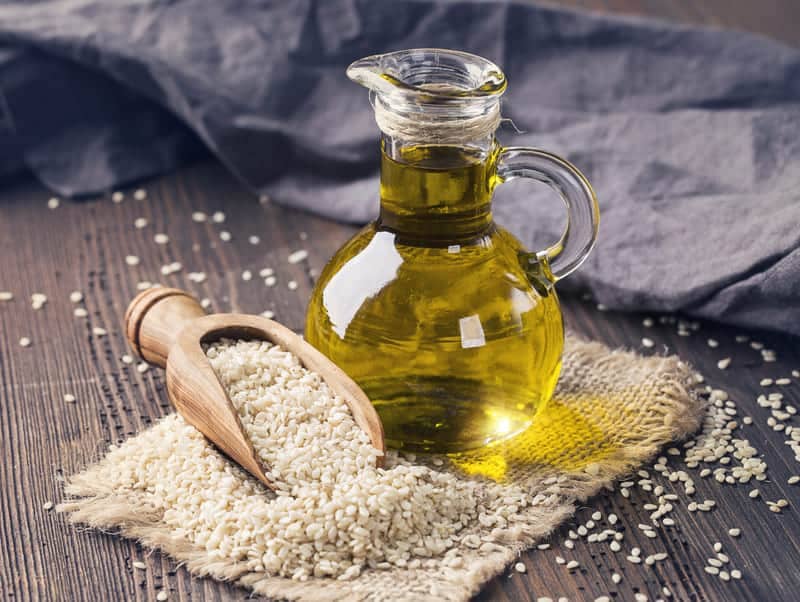Marrow, which comes from the same family as zucchini, pumpkin, and cucumber, is a nutrient-dense vegetable. You can use it in various dishes, including soups, stews, and casseroles, as it is versatile.
Also Marrow vegetable is a nutrient powerhouse, providing a wide range of health advantages from the vitamins, minerals, and other helpful components it contains.
In this article will explore the health benefits of marrow and how it contributes to a healthy diet.
What is Marrow (Vegetable)?
Marrow is a type of fruit that is commonly used as a vegetable. It refers to the ripe fruit of certain Cucurbita pepo varieties. Yet, depending on where you live, you can hear the immature fruit referred to as courgette or zucchini.
North America, Japan, Australia, the Czech Republic, Italy, Germany, and Austria commonly use zucchini, while Britain, Iran, Ireland, France, Netherlands, Singapore, Malaysia, and New Zealand call it courgette.
Marrow has a soft, white meat that is surrounded by a dark green or creamy white skin. You can harvest young, soft marrows that are ideal for enjoying both raw and cooked.
Nutrients like vitamin C, potassium, and fibre are abundant, and their calorie count is minimal. You can cook marrows in a variety of ways, including stews, soups, and casseroles, as they are a versatile vegetable.
Nutritional Value of Marrow
Calories: 17
Protein: 1 gram
Vitamin C: 22% of the RDI (Recommended Dietary Intake)
Fat: 0 grams
Carbohydrates: 4 grams
Vitamin B6: 5% of the RDI
Fiber: 1 gram
Folate: 4% of the RDI
Potassium: 7% of the RDI
Vitamin K: 6% of the RDI
Magnesium: 3% of the RD
Health benefits of Marrow
Promotes Digestive Health
Marrow is loaded with the digestive-boosting fibre that keeps you regular.
Fiber aids in intestinal regularity, prevents constipation, and lowers one’s risk of developing colon cancer.
Research has shown that a diet high in fiber can also help to prevent a range of digestive disorders, including diverticulitis, hemorrhoids, and inflammatory bowel disease (IBD)
In addition to reducing the risk of heart disease and diabetes, the fibre in marrow can help to lower cholesterol levels and manage blood sugar levels.
Promotes Healthy Skin
Marrow provides important nutrients for maintaining healthy skin. Some of the key nutrients found in marrow that support skin health include vitamins A and C, beta-carotene, and collagen.
Studies have shown that consuming beta-carotene-rich foods like marrow can help to improve skin health and reduce the risk of skin damage
Eating foods high in antioxidants can diminish the appearance of fine lines and wrinkles and protect cells from the harmful effects of unstable free radicals that speed up the ageing process.
Supports Immune System Function
Marrow is high in vitamin C, an antioxidant that supports the immune system. Vitamin C largely produces white blood cells that fight against infections and diseases.
For example, a study published in the journal Nutrients found that consuming a diet high in vitamin C can help to reduce the severity and duration of respiratory infections, such as the common cold
Eating foods rich in vitamin C can lower the risk of developing both cancer and cardiovascular disease.
Improves Eye Health
Beta-carotene, which the body transforms into vitamin A, is abundant in bone marrow. Preventing age-related macular degeneration and keeping your eyes healthy both require adequate amounts of vitamin A.
For example, a study published in the journal JAMA Ophthalmology found that people who consumed high levels of lutein and zeaxanthin had a lower risk of developing age-related macular degeneration and cataracts
Cataracts and other eye diseases can be avoided with the use of a beta-carotene-rich diet.
Supports Heart Health
Marrow is high in potassium, a mineral that plays a key role in keeping blood pressure in a healthy
range, and low in calories.
Potassium lowers blood pressure and heart disease risk by maintaining a healthy fluid balance in the body.
Studies have shown that increasing potassium intake can help to lower blood pressure and reduce the risk of heart disease
The marrow fibre can also help reduce cholesterol and lessen the chance of heart disease.
Promotes Weight Loss
Due to its low calorie and high fibre content, marrow might be a useful addition to a diet aimed at weight loss. Around 40 calories and 2.5 grammes of fibre can be found in one cup of cooked marrow. Here is how they can aid in dropping pounds:
Low calorie: eating fewer calories than you burn off is the key to weight loss. Marrow is low in calories, so eating a lot of it won’t make you fat. As a result, you may control your calorie consumption while still feeling full and pleased.
Having a lot of fibre means that it is a form of carbohydrate that the body cannot break down. For the most part, it survives the journey through your digestive system unharmed, increasing the volume of your faeces and thereby satisfying your fullness expectations.
Fiber-rich diets have been linked to reduced body mass index and obesity risk.
How to Store Marrow
To properly store marrow vegetables, begin by washing and drying them thoroughly to remove any dirt or debris. Once cleaned, wrap the vegetables tightly in plastic wrap or place them in an airtight container. It is important to store them in a cool, dry place, such as the refrigerator, to prevent spoilage.
You can store marrow vegetables for up to two weeks in the refrigerator, but it is best to use them as soon as possible to ensure maximum freshness and flavor.
Additionally, avoid storing them near fruits or vegetables that produce ethylene gas, such as apples or bananas, as this can cause them to ripen and spoil more quickly.


